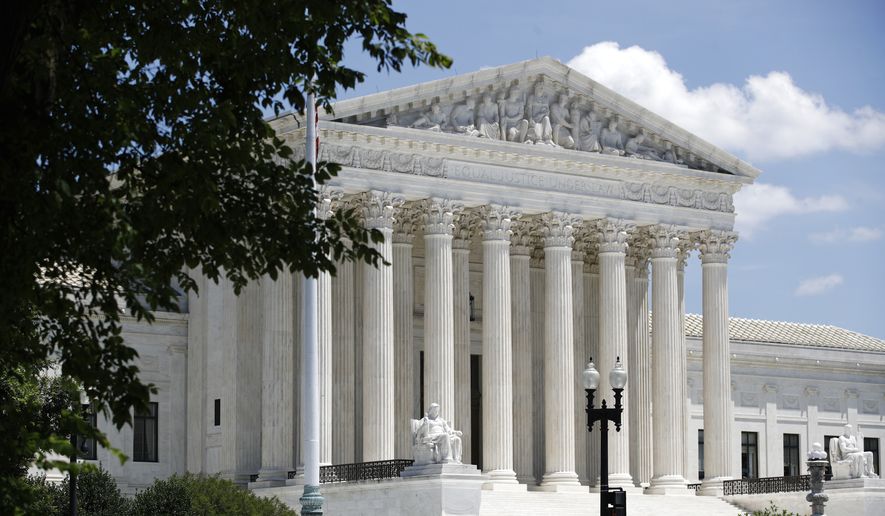The Supreme Court on Monday rejected a challenge to Congress’ 2017 tax reform that capped the state and local tax deduction filed by three blue states.
The GOP-led Congress limited the SALT deduction, which is subtracted from federal income taxes, at $10,000 in legislation passed in 2017. New York, Connecticut, Maryland and New Jersey protested, claiming it was a way to force the states to reduce tax rates.
New York Attorney General Letitia James unsuccessfully had argued Congress’ authority over the state’s taxes were limited by federalism in her high court filing, leading the group of challengers.
“The $10,000 cap is also unconstitutionally coercive because it was openly targeted at a subset of politically disfavored States … with the goal of forcing those States to adopt different taxation and spending policies. Congress’s tax power, while broad, does not authorize such compulsion,” Ms. James wrote in her brief.
SALT deductions allow residents to subtract certain state and local taxes from their federal taxable income. The current cap, which is set at $10,000, is set to expire in 2025.
The federal government has argued that Congress has passed federal tax laws impacting SALT deductions as far back as 1861.
“No constitutional principle obligated Congress to provide for any SALT deduction or precluded Congress from imposing a new limit on the deduction it had previously allowed,” the Biden Justice Department argued.
Lower courts had sided with the federal government, leaving the cap in place.
On Monday, the high court announced it wouldn’t review the case, delivering a blow to New York, Connecticut, Maryland and New Jersey.
It would have taken four justices to agree to rehear the decision in favor of the feds.
• Alex Swoyer can be reached at aswoyer@washingtontimes.com.




Please read our comment policy before commenting.